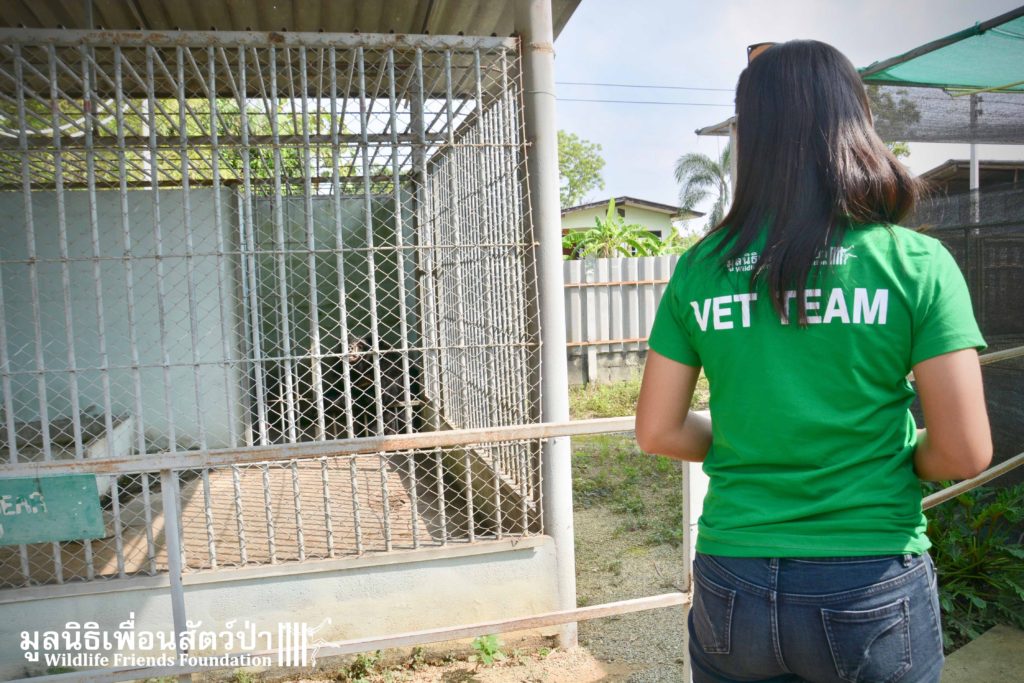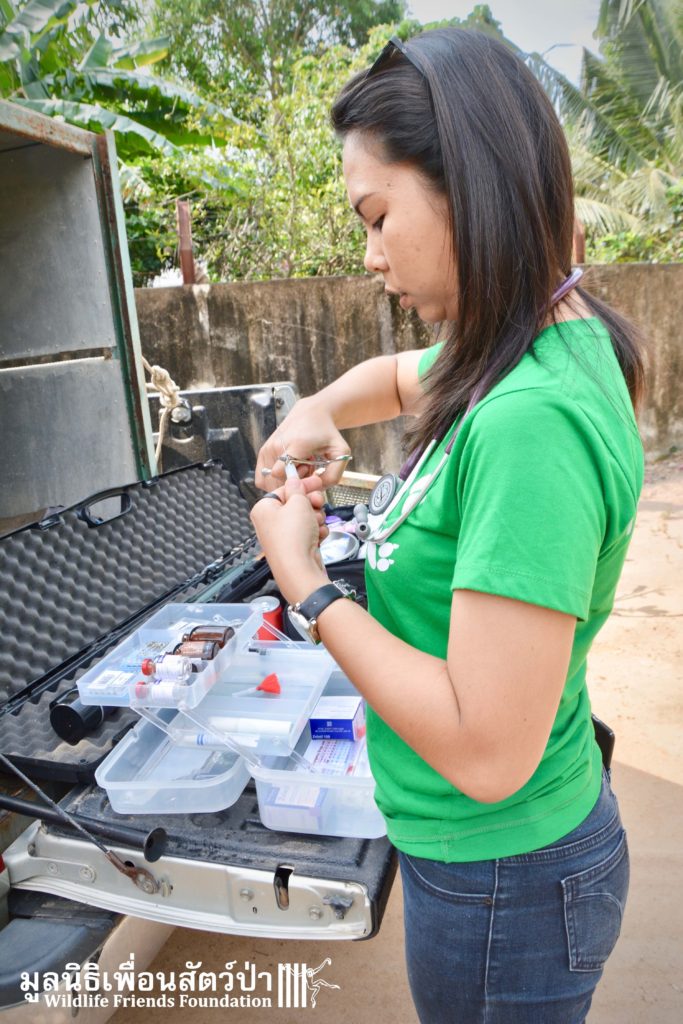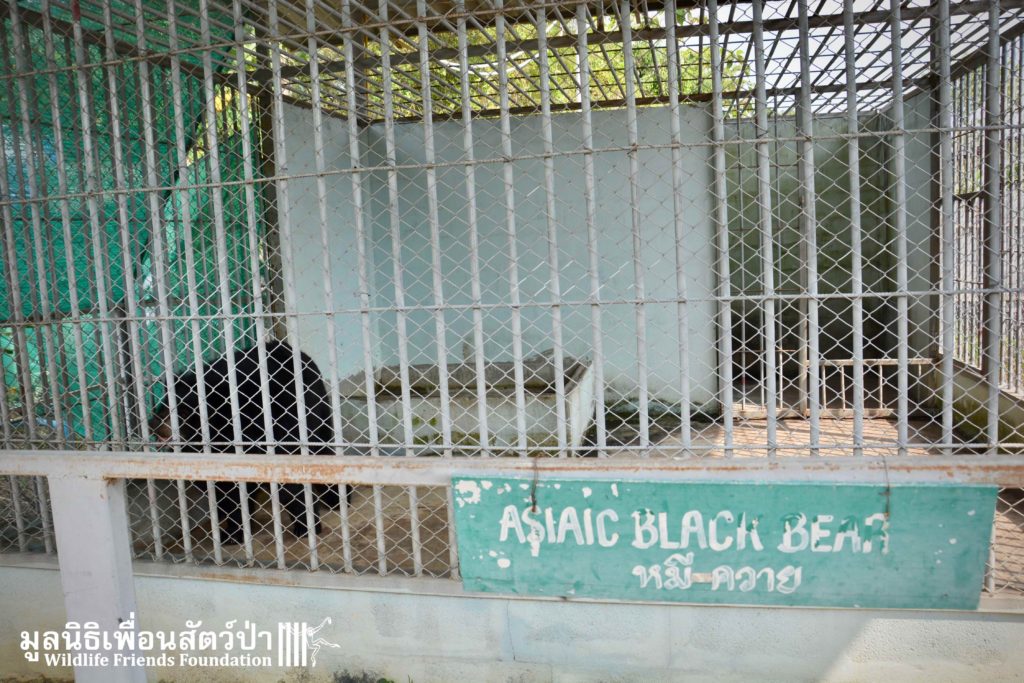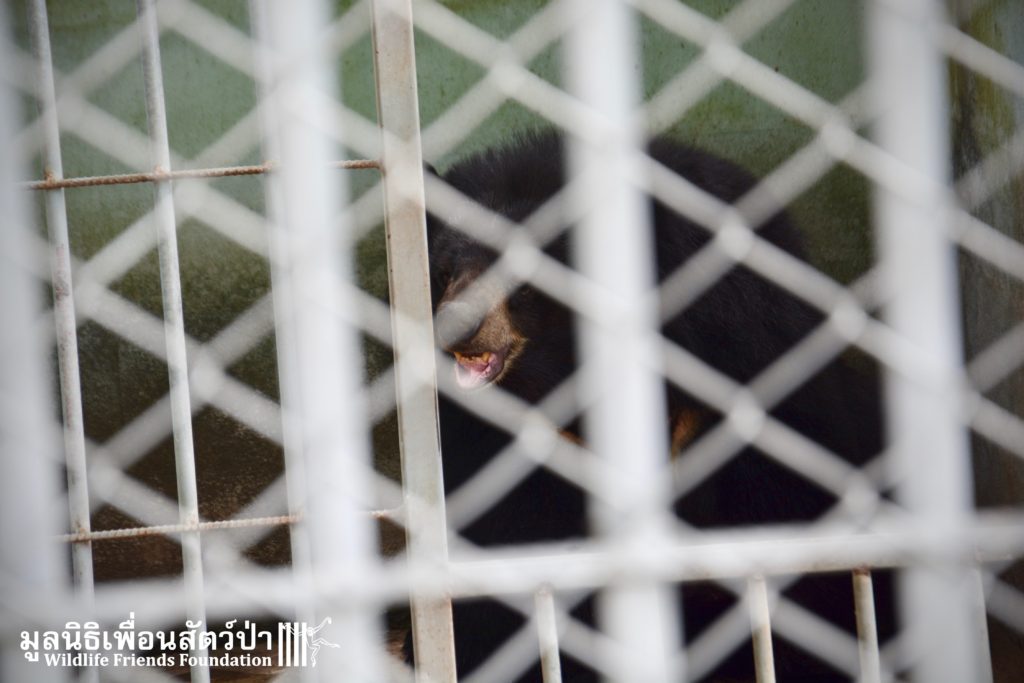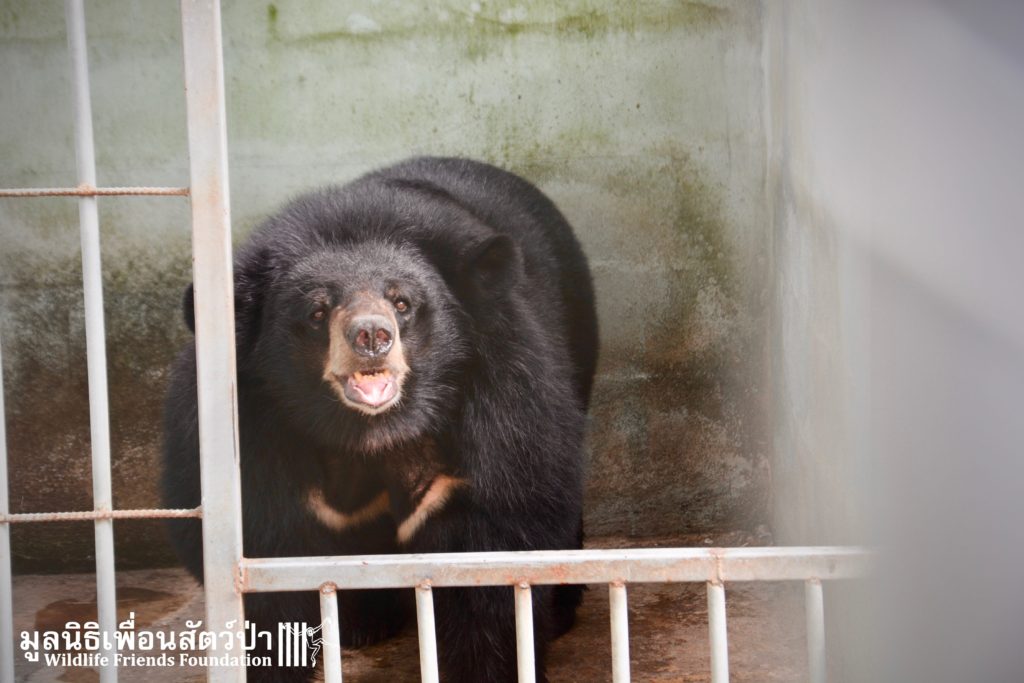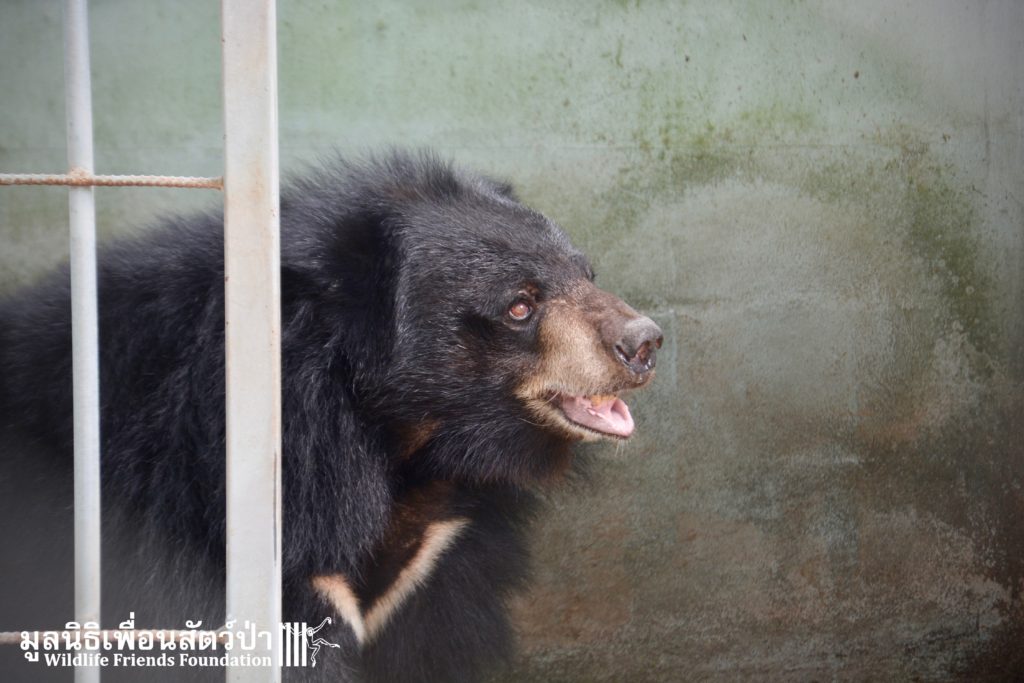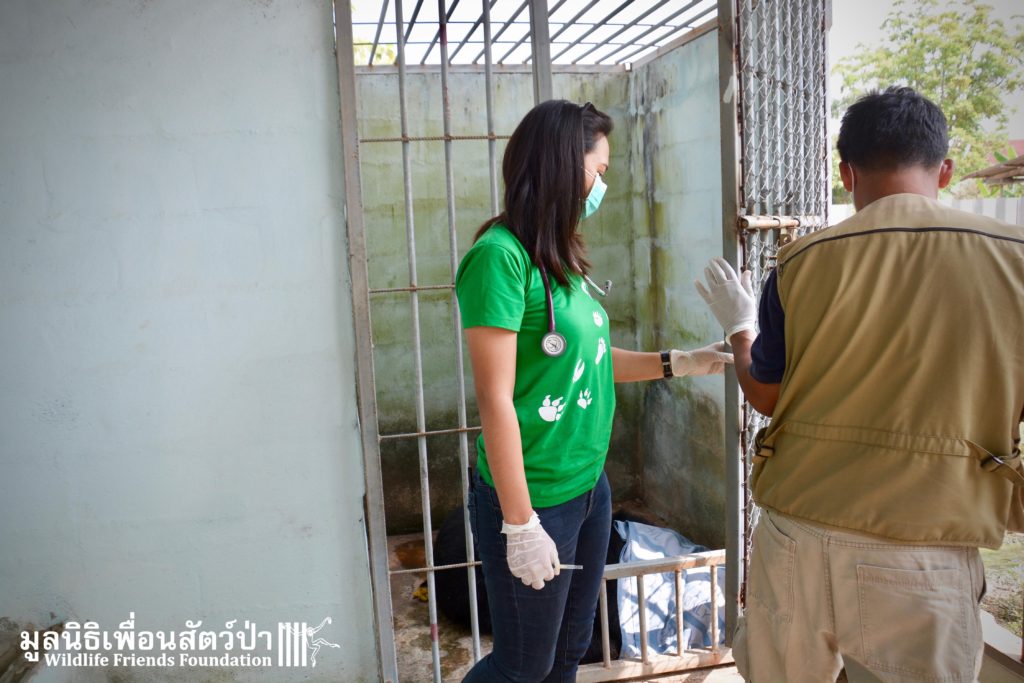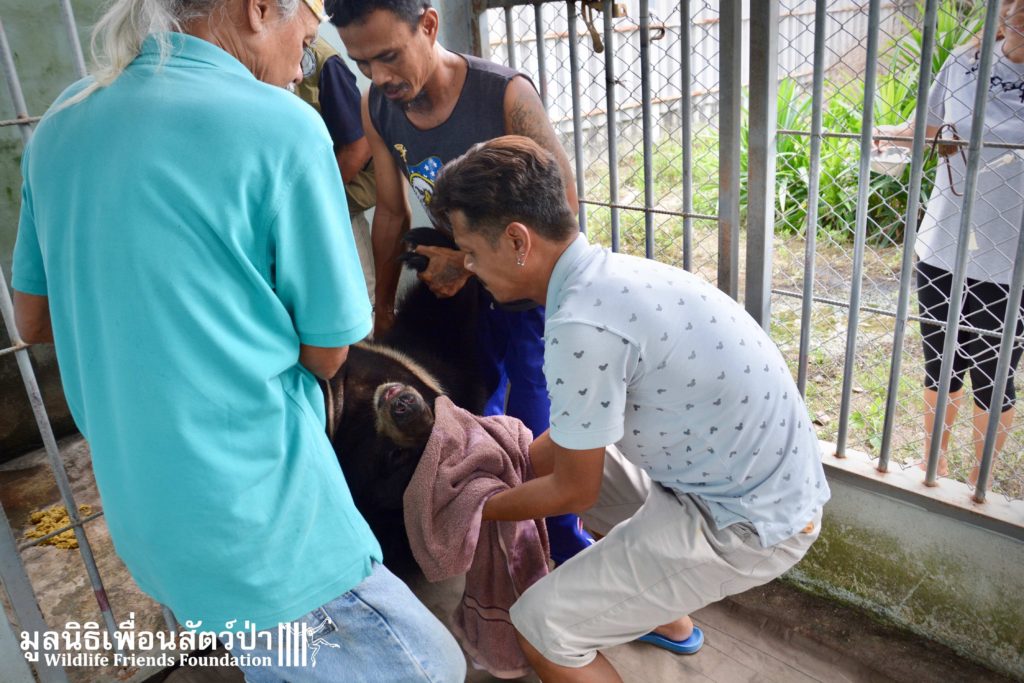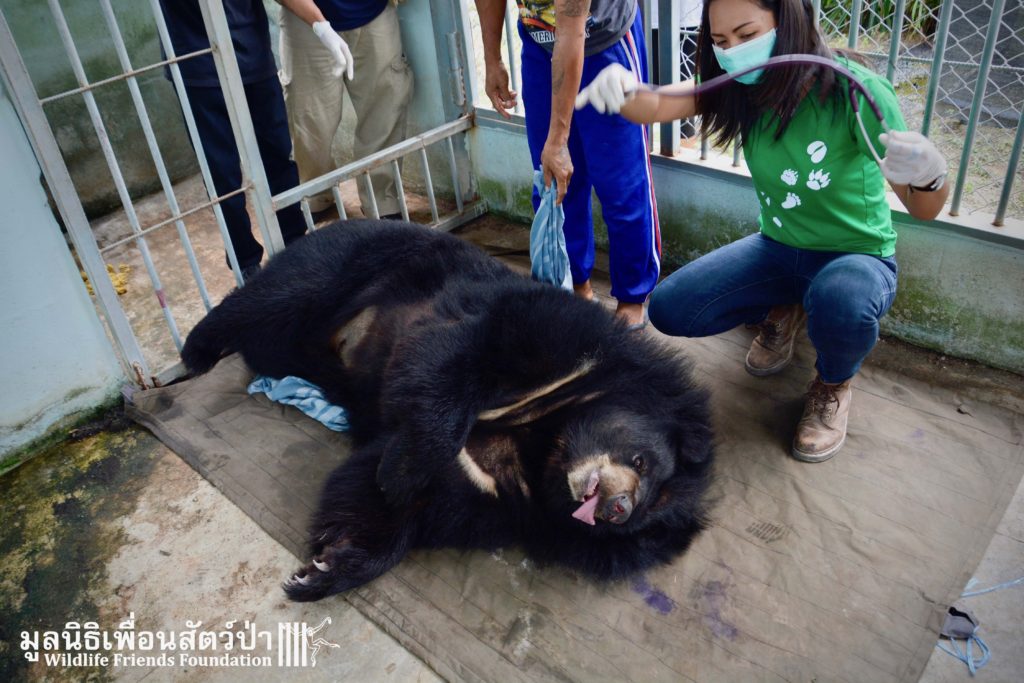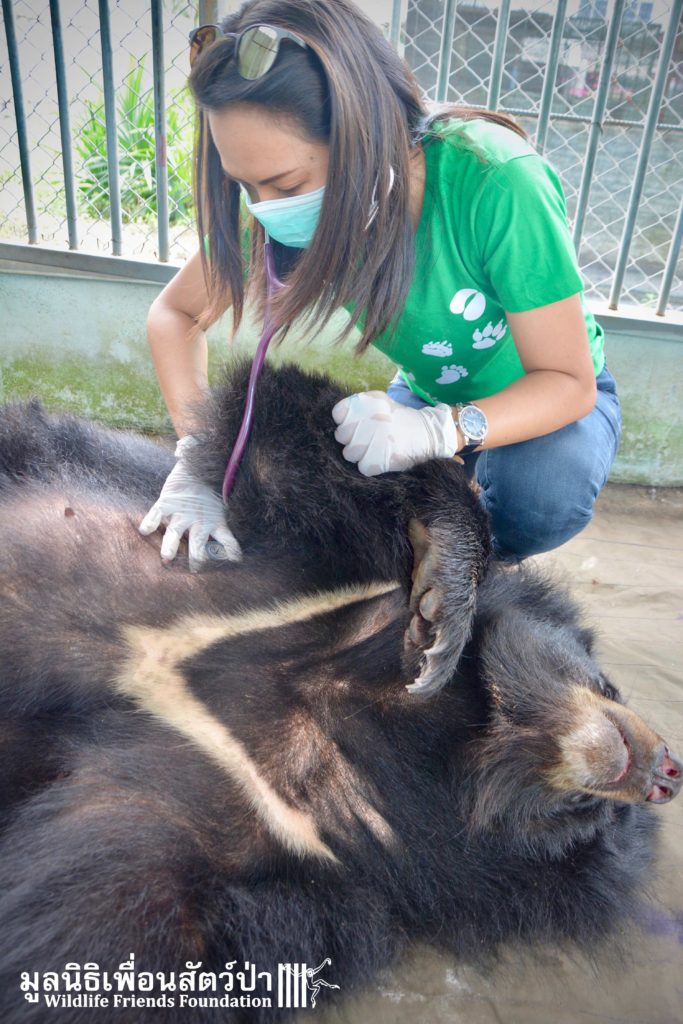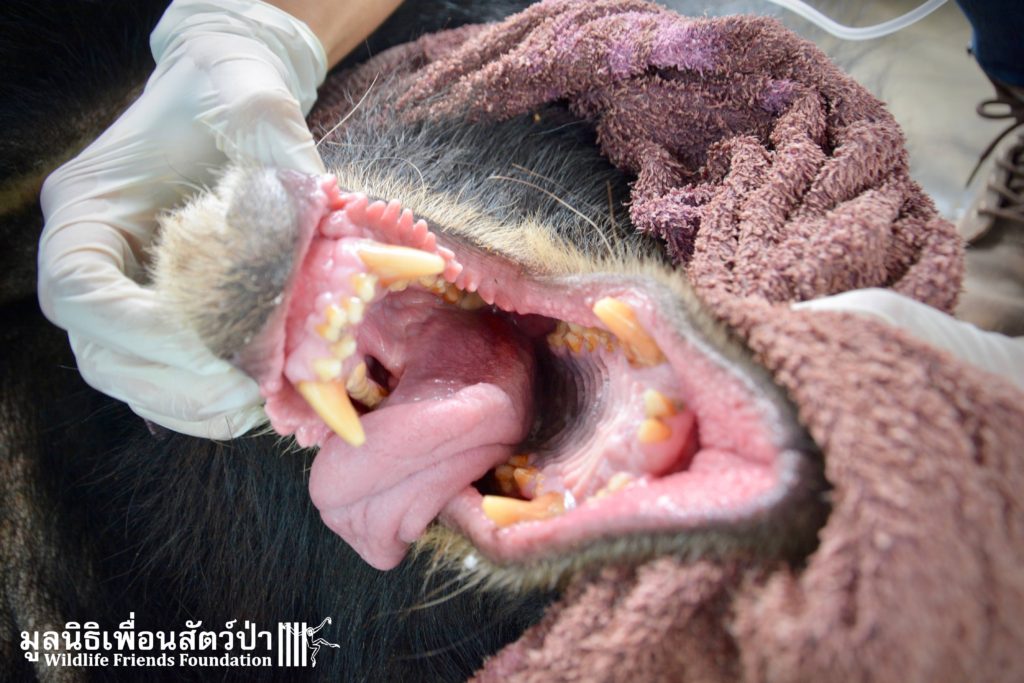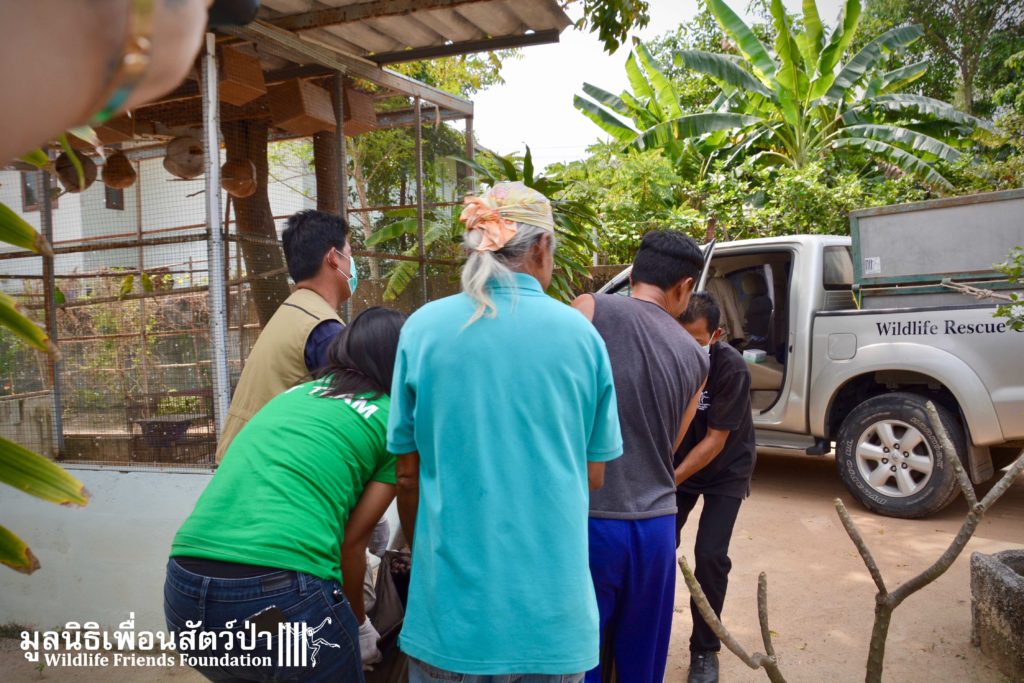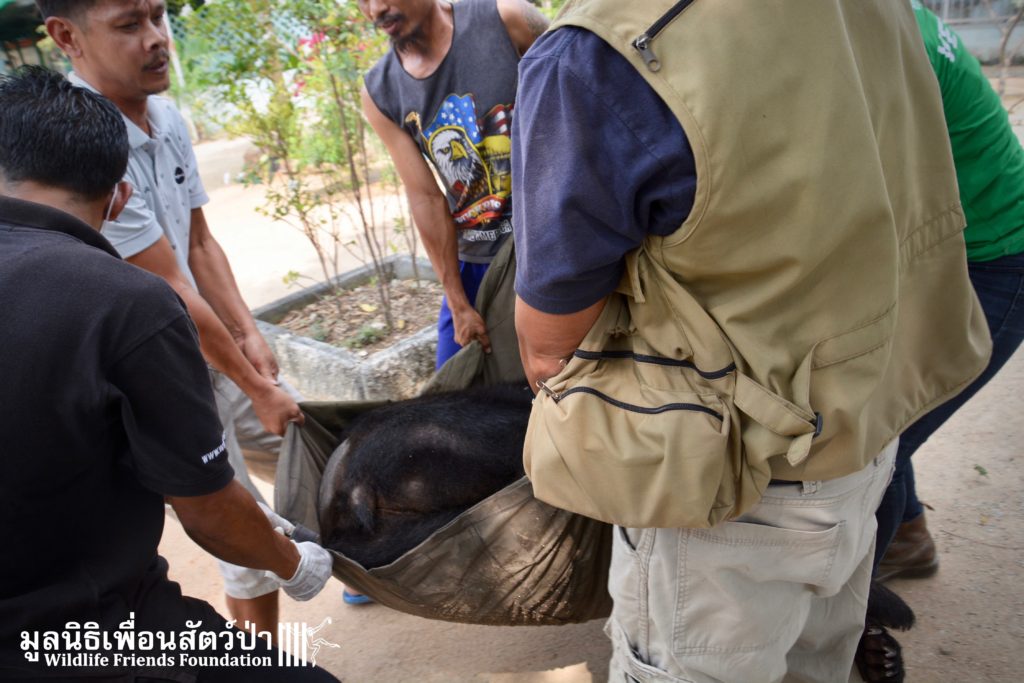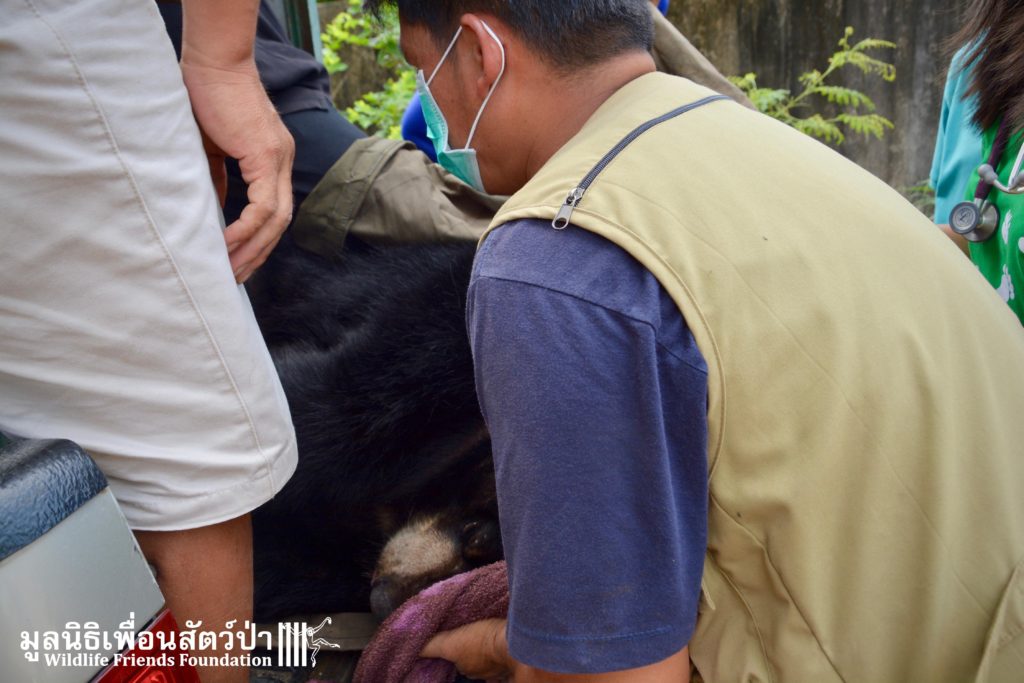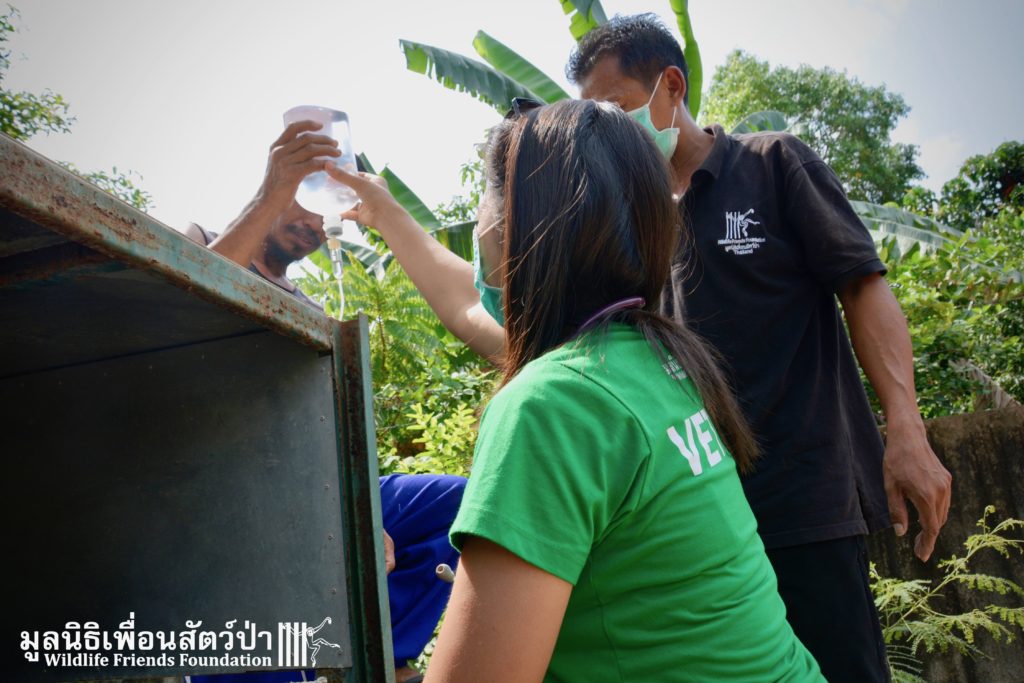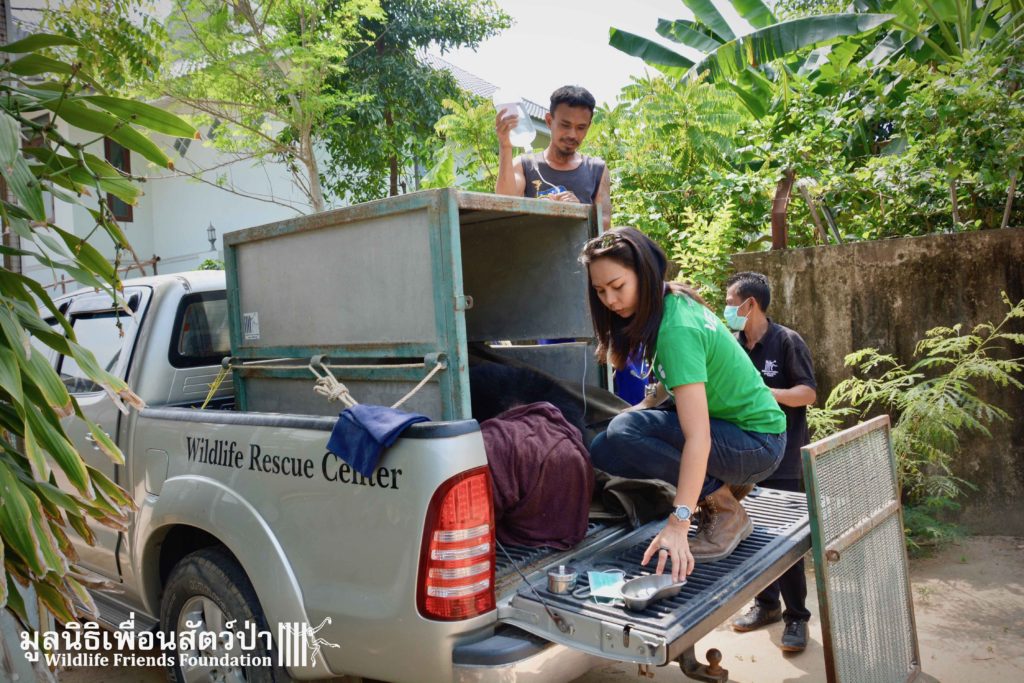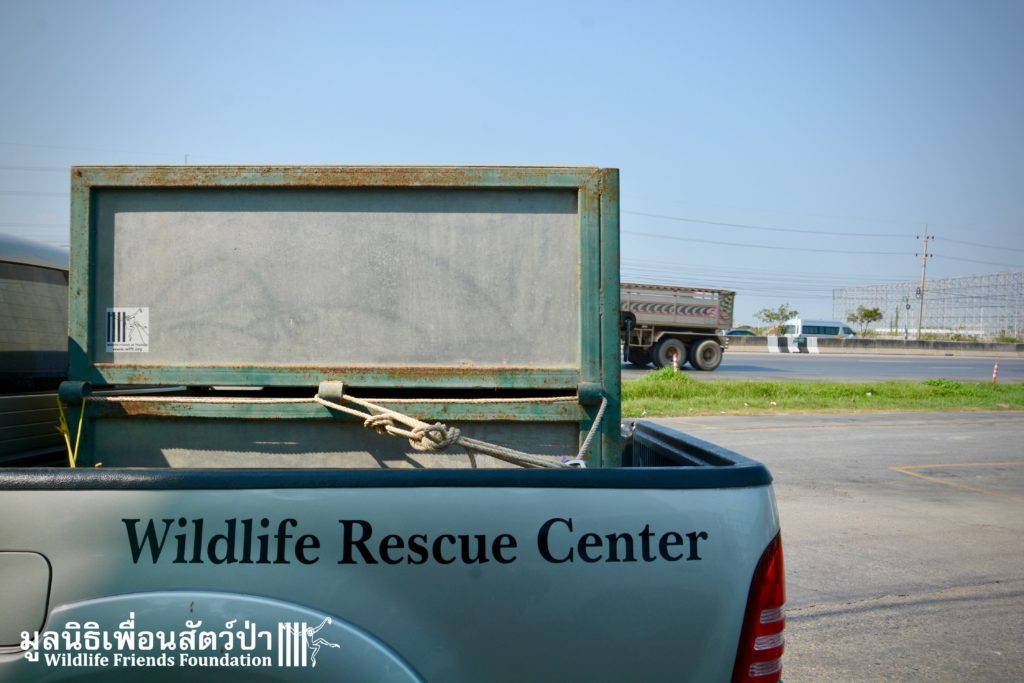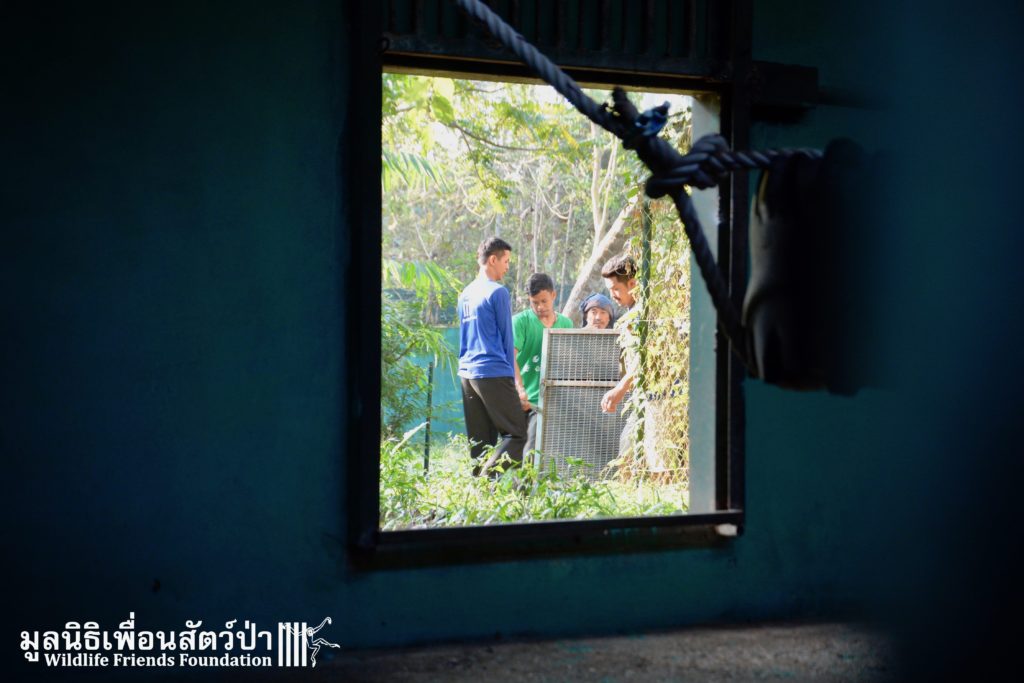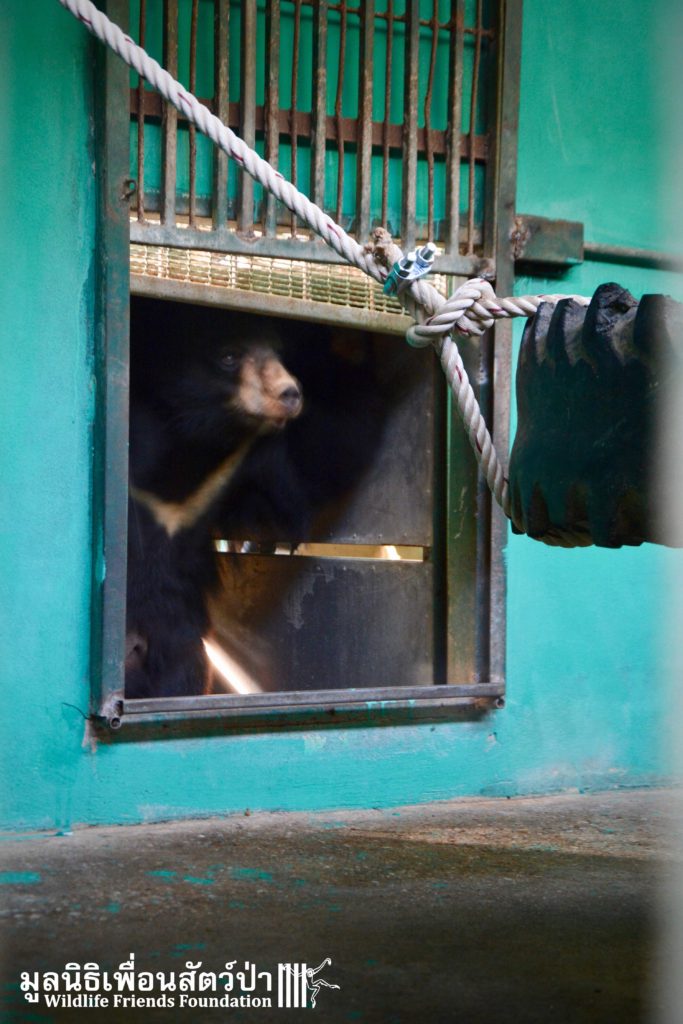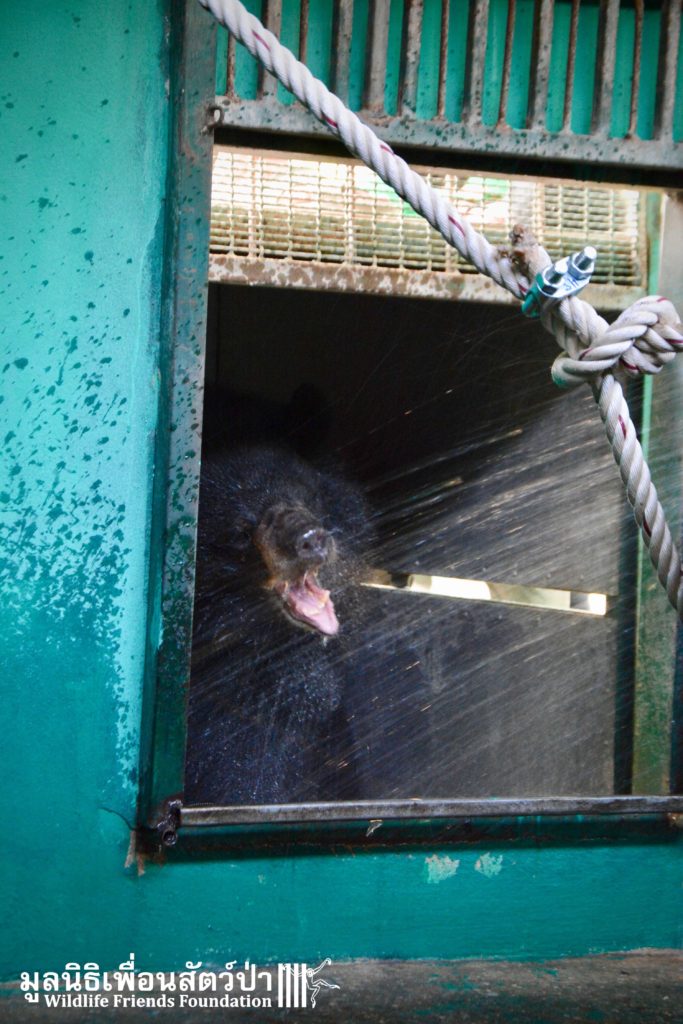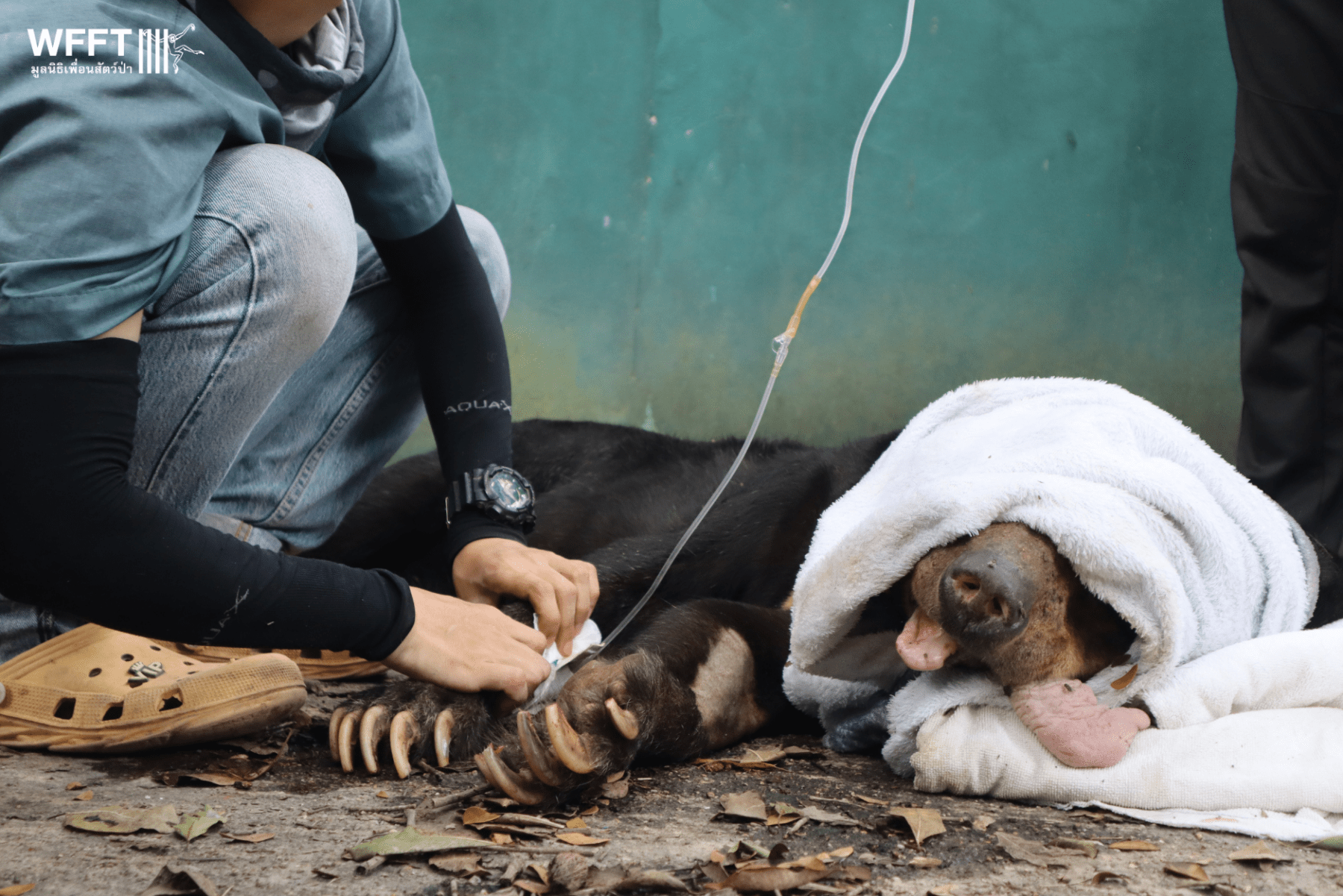One of our rescued Asiatic Black Bears, Ginny, was suffering with a 3rd eyelid protrusion and recently had surgery to bring her much-needed relief.
Finally, some Joy in her Life…
Recently the WFFT Team heard about an Asiatic Black Bear (Ursus thibetanus) in dire need of help. ‘Joy’ was being kept in a small cage in the garden of her owners. They had decided after keeping her for years that it was time to find a more suitable home for her and called us to see if we could help. The team headed out as soon as possible to investigate. We arrived at the place Joy was being kept and spoke to her owners. They explained very vaguely that someone had given Joy to them when she was still a cub, and that since then they kept her as a pet. We were told that she came from the Kanchanaburi Province in Western Thailand. It is likely that she was poached from the wild after her mother was killed so her body parts could be sold in the illegal trade.
After a short time of keeping Joy it became increasingly difficult to handle her so she was condemned to a small cage for 15 years. Many captive bears are kept deplorable conditions such as these, they cannot express natural behaviors or experience natural things. Joy had not felt grass under her feet, been able to climb trees, seen the open sky or swim in natural streams for over a decade. The team got to work preparing her for the journey back to the WFFT Wildlife Rescue Centre.
The IUCN Red List of Threatened Species lists this species as Vulnerable (VU) to extinction. Habitat loss, combined with hunting for gall bladders and other body parts are the main threats to this species. Increased demand for bear bile which is used in traditional Chinese medicine, as a result of rapid human population growth, and increased commercial poaching of wild bears to fuel to trade has led to the decline of most Asiatic black bear populations. The capture of live bears presents yet another threat to this species. In many countries they are commonly seen living with people who are attempting to raise them as pets, these cubs often originate from the poaching of their mother for the traditional medicine trade. The Asiatic Black Bear is protected under both international and national laws, but often these laws are not enforced.
15 years is a long time in solitary confinement. After the long journey back to the WFFT Wildlife Rescue Centre Joy is being kept in quite quarantine area while she can settle in to her new abuse free life. Once she has settled in she will given access to a large forested enclosure where she can once again learn how to be a bear. We are hopeful that she can join one of bear groups or be paired with another and form some new friendships. Keep an eye for updates on this very special lady.

